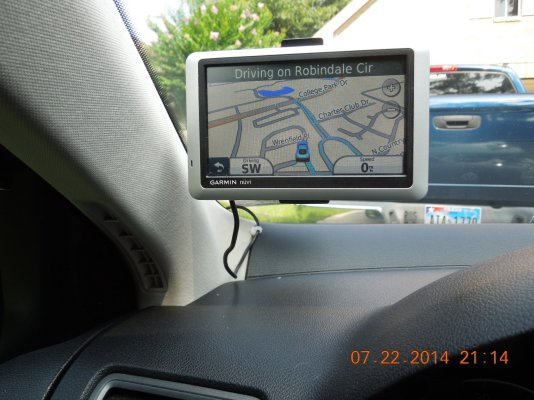I like the backup camera more than I thought I would, plus it gives a display for the trip computer and an index to my music on my USB stub drive I have buried so it's not all bad.
+1
I sometimes use on-street parking where you have to back in to the space, diagonal to the curb. That rear-facing camera makes it a snap, and I get it perfectly the first time.



 . However, the Toyota NAV system has been flawless, so far. And I find the backup camera very useful.
. However, the Toyota NAV system has been flawless, so far. And I find the backup camera very useful.